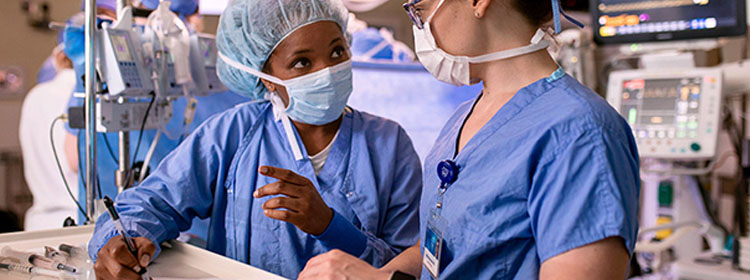
Anaesthesiology Course
What is Anaesthesiology
Anaesthesiology is a branch of medical science that deals with anaesthesia and anaesthetics. Anaesthesia is a state of temporary loss of sensation and awareness or consciousness that is controlled and induced for medical purposes. An anesthesiologist is a person who holds a postgraduate medical degree and is board-certified and legally qualified to administer anaesthetics and related techniques on an individual under treatment.
In the present era of safe medication and stricter monitoring in healthcare facilities, anaesthesia is considered as the most important part of any surgery. A standard protocol is followed to numb the pain in a particular area during a surgical procedure, invasive radiology or diagnostic tests like endoscopy and colonoscopy. Licensed anaesthesiologists design and implement anaesthesia care plans for individual cases without which it would be terrible to go through. So, though it is often swept to the sidelines, Anaesthesiology is just as critical a discipline as any other specialisation. A medical student after completing MBBS has to do MD in the subject to become a certified anaesthesiologist. Besides the core subject, Anaesthesiology course students have to study critical care medicine, cardiology, pharmacology, internal medicine, and of course, the basics of surgery.
Eligibility Criteria (UG & PG) of Anaesthesiology
Eligibility criteria for admission in MBBS courses in India are based on the instructions of the Medical Council of India (MCI). The candidates aspiring to pursue medicine as a career must, in the first place, have completed the plus two level from a recognized board with the subject combination- physics, chemistry and biology with a minimum 50% in the aggregate. This is for general category students. For students belonging to the SC/ST/OBC or other backward categories, the minimum plus 2 level percentage is 40. To secure admission in any of the colleges offering MBBS in India, one needs to clear the NEET examination with a good score. NEET is conducted by the National Testing Agency (NTA).
Careers in Anaesthesiology
Since every hospital requires a team of anaesthesiologists who are experienced and dedicated, the job industry for certified anaesthesiologists will always be in a boom. An anaesthesiologist has to administer an anaesthetic to a person undergoing surgery. They work along with other doctors to monitor a patient’s heart and pulse rates, body temperature and breathing during the surgery process. They strive to maintain a stable condition of the patient during the entire procedure and alert the surgeon whenever they notice the slightest of a problem in him. Anaesthesiologists are needed inside the Intensive Care Unit (ICU) and Intensive Critical Care Units (ICCU) where they have to administer pain-relief medications to critically ill patients. They play a crucial role in the pain management of patients who suffer from injuries, chronic ailments, and terminal diseases. Before delivery during labour, they relieve the mother of the excruciating pain. Anaesthesiologists work in hospitals, health clinics, operation theatres, outpatient surgery centres, and dental clinics etc. Some work in the emergency wards requiring immediate care. Anaesthesiologists participate in thoracic and cardiac surgery, plastic and gross reconstructive surgery, neurosurgery, paediatrics, dental, maxillofacial surgery, obstetrics, orthopaedic surgery, and a wide range of other invasive treatment procedures.An assistant anaesthesiologist works under the supervision of a senior anaesthesiologist. He/she assists the main doctor in all possible ways.Certified Registered Nurse Anaesthetists (CRNA) work under the supervision of an anaesthesiologist. They assist the anaesthesiologist in the administration of anaesthesia during surgery.
